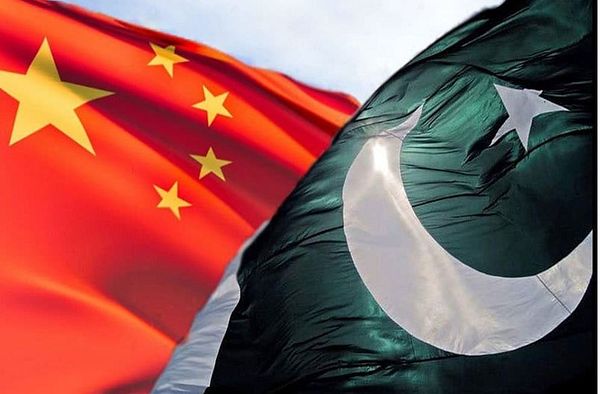Slow pace, terror attacks, corruption slow down China Pakistan Economic Corridor’s progress
China’s highly touted Belt Road Initiative (BRI) seems to be losing its sheen everywhere. However, Beijing is much concerned about the China Pakistan Economic Corridor (CPEC), which is the centrepiece of the BRI. The sluggish pace of work, frequent terror attacks and incidences of corruption have slowed it down, which has angered China. The struggle of the CPEC has embarrassed China.
Chinese companies have made complaints to the Pakistan government for “negligible growth” for the past three years. “They are crying. Chinese ambassador has complained to me that you (Pakistan) have destroyed CPEC and no work was done in the past three years,” said Saleem Mandviwalla, chairman of Pakistan’s Senate Standing Committee on Planning and Development.
Out of 77 CPEC projects, just 15 could be completed since it was announced in 2015.
Another major concern that has grappled Beijing with is the attacks on Chinese nationals working on the CPEC projects. In July 2021, nine Chinese national workers were killed in an attack on a bus in Pakistan’s Khyber Pakhtunkhwa province. China demanded Pakistan to “severely punish” the attackers and protect its national. Yet, in August 2021, another such occurred. Andrew Small, a senior transatlantic fellow with the German Marshall Fund’s Asia programme said Pakistan’s efforts to increase security around Chinese projects had proved futile.
The frequent attacks made China furious. It demanded Pakistan “to take practical and effective measures” to ensure that similar incidents would not happen again.
The embassy further said that the security situation in Pakistan had been severe and there were several terrorist attacks in succession, resulting in the casualties of several Chinese citizens.
Pakistan blamed the Indian and Afghan intelligence agencies for supporting terrorists who carried out the July bus attack.[5]
However, China’s state-run Global Times newspaper pointed an absence of conclusive evidence to back Pakistan’s claim.
This suggested there was a lack of cooperation and trust between the officials of the two countries—a crucial factor that affected the CPEC.
Now with the Taliban coming back to Afghanistan, there are higher chances of Chinese workers getting attacked by the militant forces in Pakistan. There was an expectation that the withdrawal of the US from Afghanistan and subsequent bonhomie between the Taliban and Beijing would make China a big player in central and south Asia. However, the links between the Taliban and the East Turkestan Islamic Movement– which fights against China over suppression of Uyghur Muslims—is going to see the CPEC is attacked often now.
There is a possibility of the separatist Baloch militants too become stronger with the help of the radical extremist in the Taliban. The Baloch groups are mostly behind the attacks on the CPEC projects as they have been opposing China’s growing involvement in mineral-rich Balochistan.
The fear of attack has led Chinese workers to arm themselves with assault weapons and to use the Pakistani Army’s vehicles.
There have been allegations of lack of transparency and corruption in the CPEC deals. CPEC Authority chief Asim Saleem Bajwa had come under pressure to resign in 2020 following the allegation of corruption. [10] In April 2021, Pakistan’s National Accountability Bureau’s (NAB) had exposed a PKR 2.4 billion scam in the Gwadar Water Desalination Project, a CPEC component.
Similarly, illegal profiteering was reported by the Chinese companies that built power projects and sold electricity at exorbitant rates.
A Pakistan-government ordered probe indicted Chinese companies for corruption.
However, having invested too much money and pride in the CPEC, China and Pakistan try to carry it on with the project,
There have been cries within Pakistan that China is benefited more from the CPEC than Pakistan. Also, the International Monetary Fund (IMF) has warned that the CPEC was causing Pakistan’s current account deficit to widen at an unsustainable rate.
To average Pakistani’s dismay, the big initiative is still too far from bringing transformative changes as it was promised. People in Pakistan are raising questions now.
“It did not take PM Khan long to realize that his country had put itself so comprehensively at China’s mercy in such a wide range of fields that not only did all talk of renegotiating the terms of the CPEC vanish into thin air, it has also never been articulated again since then,” said think-tank European Foundation for South Asian Studies.[16] But lack of trust, coordination and cooperation between the two countries, however, has certainly affected the pace of the project. And the slow implementation of the BRI component in Pakistan, an important ally of China, has embarrassed Beijing, especially in the wake of the US and European Union coming up with alternative scheme to counter the BRI. The failure of the CPEC can be read as a collapse of a major pillar of the BRI.













